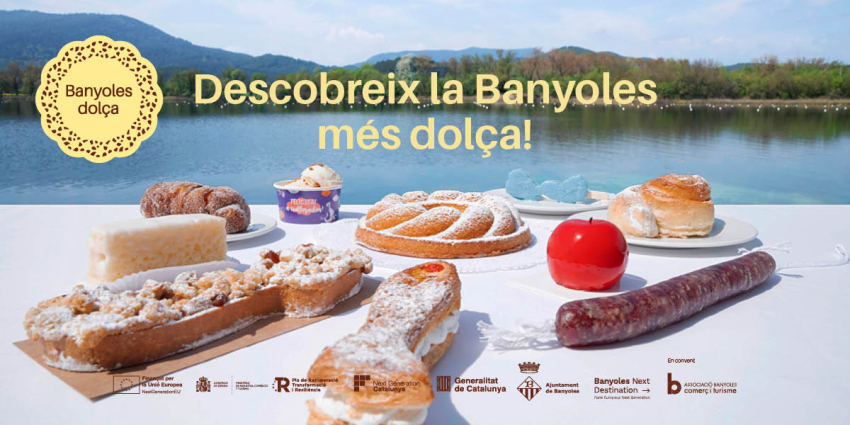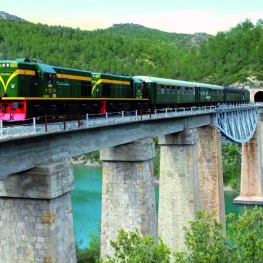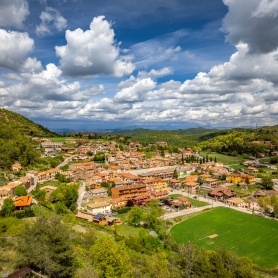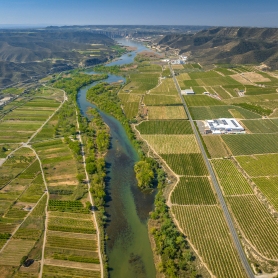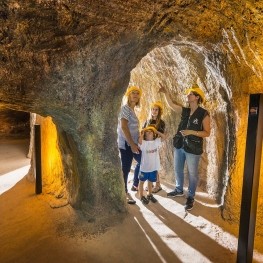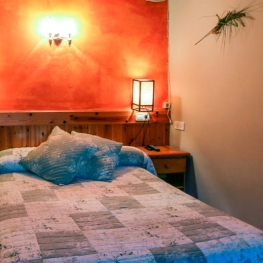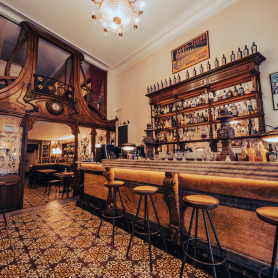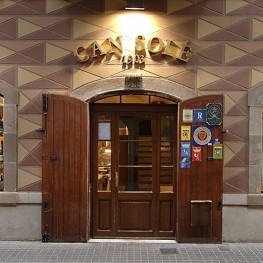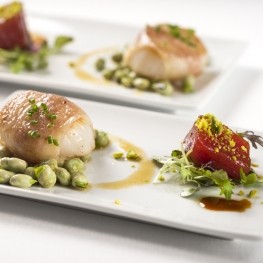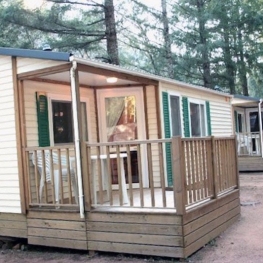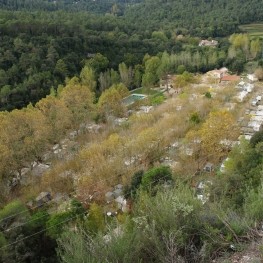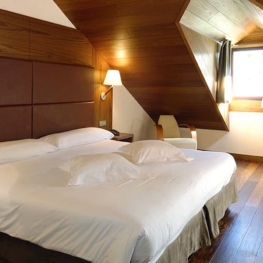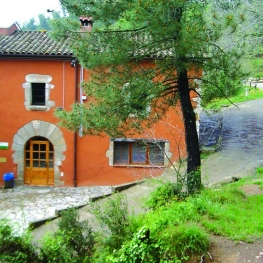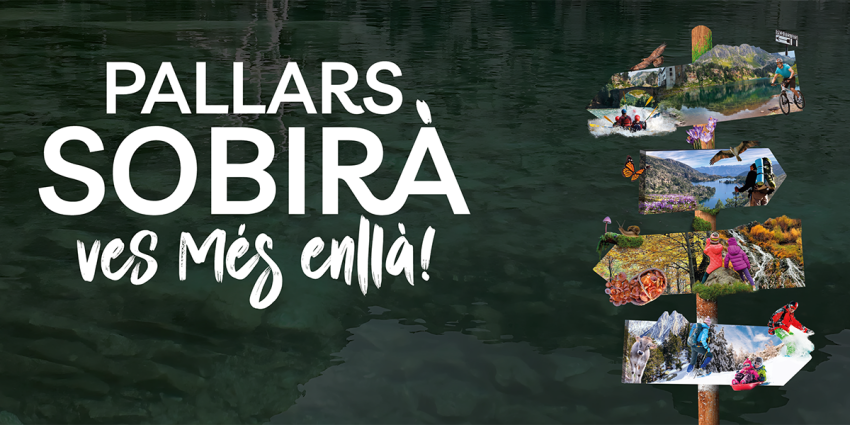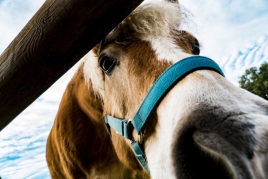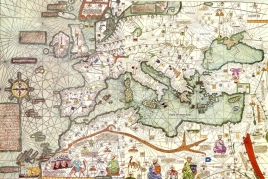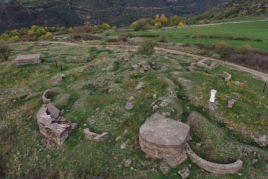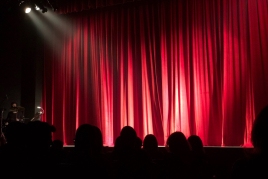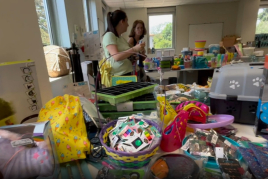The main characters in the the siege of 1714
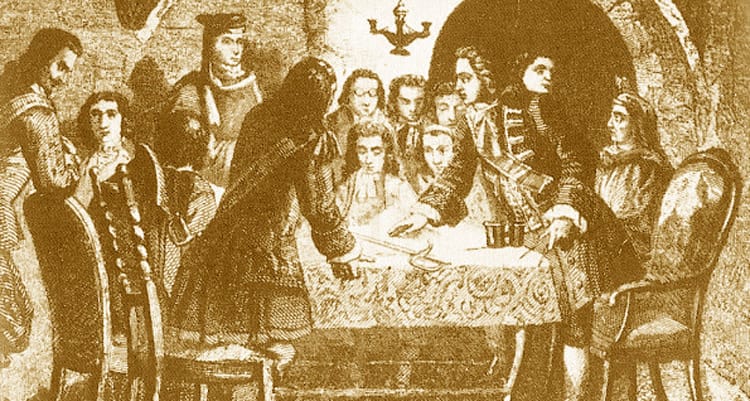
The story is not written on paper with the help of a pen. The story is drawn with the facts, actions, decisions and actions that people do. And the site of Barcelona September 11, 1714, like many other historical events, was created as well.
On this route, femTurisme.cat affects the characters who were participants in these events, who performed certain actions, taking decisions and that, in turn, led them to act the way they did.
And all these events, this process has led us to have the history we know today, to have the past that has led us to the present where we live and that will mark the future of Catalonia.
Rafael Casanova, character Capital
 Rafael Casanova is one of the main characters of the Barcelona site. Was chosen third counselor Barcelona as a supporter of Archduke Charles of Austria in 1706 and in 1707 was named honorable citizen. In 1713 he received the title of director and therefore, commander of the Barcelona Coronela troops.
Rafael Casanova is one of the main characters of the Barcelona site. Was chosen third counselor Barcelona as a supporter of Archduke Charles of Austria in 1706 and in 1707 was named honorable citizen. In 1713 he received the title of director and therefore, commander of the Barcelona Coronela troops.
One of the decisions taken was to conduct continuous attacks every night against the Bourbon troops, in late 1713, in order to weaken them. In late February, Rafael de Casanova became the chief executive of Catalonia, both politically and militarily.
Despite several attempts, did not admit any negotiations to accept the surrender of the troops and was austracistas constant calls from the army. Even as early as the spring of 1714, when contraba in Barcelona , encouraged them, saying that "the defense should be effective and unchanged until the last drop of blood of all the inhabitants of this place."
During the siege of Barcelona, ??Rafael de Casanova was wounded while holding the flag of Santa Eulalia, although he did not die in battle. After the siege he found refuge among populations that marked his life: Barcelona , Moiá and Sant Boi de Llobregat . He was not seen again until 1719, when he returned to his job as a lawyer.
In Moiá find the Rafael Casanova House Museum, dedicated to him.
Rafael de Casanova, a symbol of Catalonia
Son of Moiá , Rafael de Casanova moved to Barcelona to study law, where he lived with his wife and children on the street Banys Nous, very close to the Plaza del Pino and Jews bathrooms. Indeed, close to the house where he lived the Casanova family still remains of the baths in 1716 survived to remain.
 Rafael Casanova following functions by their lawyer until 1734, at which time he moved to Sant Boi de Llobregat , a city where he was the ancestral home of the family and was used as accommodation Bourbon troops. In this population is where Rafael Casanova died in 1743.
Rafael Casanova following functions by their lawyer until 1734, at which time he moved to Sant Boi de Llobregat , a city where he was the ancestral home of the family and was used as accommodation Bourbon troops. In this population is where Rafael Casanova died in 1743.
He was buried in an anonymous burial glass in the church of Sant Baldiri, located in the old town. After several reforms, his remains have not been found anywhere.
In the nineteenth century, Rafael de Casanova, became a symbol of the struggle for freedom of Catalonia. Many monuments dedicated to him and the National Day of September Eleven were made, these monuments are home most of the offerings that are made ??during the celebration of the National Day of Catalonia.
September Eleventh Day
 September Eleventh Day or National Day of Catalonia is the celebration of the National Day of Catalonia, where the fall of the city commemorates Barcelona at the Siege of September 11, 1714 against the Bourbon troops.
September Eleventh Day or National Day of Catalonia is the celebration of the National Day of Catalonia, where the fall of the city commemorates Barcelona at the Siege of September 11, 1714 against the Bourbon troops.
The institutionalization of this day as a national holiday in Catalonia declared the law enacted by the Parliament of Catalonia in 1980, after reconstitution.
This same law is legally enacted other symbols like Catalan anthem Els Reapers and the Catalan flag, four red stripes formed on yellow background.
The entry into force of the Act was effective from the day it was published in the Official Journal of the Generalidat of Catalonia, which was June 12, 1980.
It is customary, in the Catalan towns, finding dedicated to Rafael Casanova which are tributes with flowers and parliaments on the occasion of the celebration of the National Day of Catalonia. Monuments in Barcelona , can find it in round San Pedro, next to the street Ali Bei, near Calle Gerona.
Antonio de Villarroel, commander of the troops
 Antonio de Villarroel was a soldier who defended the Barcelona 1714 he was appointed deputy marshal by Archduke Charles of Austria.
Antonio de Villarroel was a soldier who defended the Barcelona 1714 he was appointed deputy marshal by Archduke Charles of Austria.
Born in Barcelona, ??Antonio de Villarroel was a defender of the French troops of Louis XIV who supported Philip V. In July 1713 gets his new position: supreme commander of the Catalan forces. In this position organizes the defense of the city of Barcelona.
In early September, I wanted to accept the surrender of the city taking advantage of the offer of the Duke of Berwick. Councilor Rafael Casanova, and other directors, was not accepted.
On September 6, Antonio de Villarroel resigned from office. But on September 11, 1714, you would put in front of the troops and undertake a final desperate attack. Is wounded and knowing that Rafael de Casanova had also fallen, capitulated to prevent more deaths.
Once the site is completed, all the military chiefs were arrested, including Villarroel, and imprisoned in Alicante. Antoni de Villarroel was moved to La Coruña in a wet cell that caused paralysis in the legs and where he died in 1726.
In the Eixample district of Barcelona found a street named after him, Villarroel Street.
Josep Balaguer i Bellver in "Josepet"
 I Bellver Josep Balaguer was general battle Catalan army. They born in Lleida , his tough character, impassivity and determination marked his way to do, but his soldiers had such affection, that he said "In Josepet".
I Bellver Josep Balaguer was general battle Catalan army. They born in Lleida , his tough character, impassivity and determination marked his way to do, but his soldiers had such affection, that he said "In Josepet".
He was Sergeant Major of the Regiment of the Royal Guard of Barcelona, ??where he fought throughout the War of Succession. Was not obeyed the order to march in Catalonia, like most soldiers of the regiment and rose as General Battle. Their superior then be Antoni de Villarroel and fall wounded in May 1714.
In September, when the AUSTRAC troops surrender proposal, Josep Balaguer i Bellver reject as Battle General reads the response to the French army who apparently read:
"Three Common have met, and having considered the proposal made ??by an officer of the enemies respond that: they want neither hear nor accept any proposal of the Enemy". There will be only one way: the Martyrdom. Among the Catalan is a Black Flag.
Once the city is occupied, Josep Balaguer i Bellver is imprisoned and taken to Hondarribia. He died and was buried in Vienna in 1732.
Black Flag
 The Black Flag is one of the symbols that have remained the fall of Barcelona on 11 September 1714.
The Black Flag is one of the symbols that have remained the fall of Barcelona on 11 September 1714.
He appeared in several parts of the city in times of defeat of combat, and even in Montjuïc, at the beginning of the conflict, which read: "Death or preserved our privileges" or Cardona where waved the words "We will live free or die."
The city councilors wore robes (robes) purple that were changed by black gramallas, showing the symbol of their struggle: it was only possible victory or death.
So the Black Flag is a clear sign of resistance and struggle. In contrast to the white flag, symbol of surrender.
During the War of the Reapers, was also used. During the 20's was also the name of a Catalan separatist movement tried attacking Alfonso XIII.
Josep Moragues the Miquelet
 Born in Sant Hilari Sacalm in 1669, Josep Mas i Moragues has become one of the symbols of the Austrian cause during the War of Succession
Born in Sant Hilari Sacalm in 1669, Josep Mas i Moragues has become one of the symbols of the Austrian cause during the War of Succession
Born into a prosperous peasant family, and he joined in defense movements that took place in Catalonia during the Nine Years War against the French. Later, he joined the Covenant of Vigatans, was erected as a company commander and the governor of miquelets Castellciutat ( La Seu ).
This villa surrendered on December 28, 1713 to the Bourbons. Moragues fled to Sort from where Castellciutat again to attempt to quell the rebellion that took place there, despite returning to Pallars finished to resist in that area.
Once fall Cardona , General Moragues returned to Sort with his family. Still, it was claimed in Barcelona by Captain General and fearing a conspiracy, attempted to flee, but was betrayed and arrested. He was dragged alive through the streets of the city, executed, decapitated, dismembered and publicly displayed on the Portal de Mar.
Today we find several monuments dedicated to highlight the overall Moragues of. Sort , located in the Plaza Mayor where he is represented with a bust and on the street where he lived; also in Sant Hilari Sacalm in the square and Josep Moragues of Barcelona , in the Pla de Palau, the historic place was hung his head.
What to do
Where to eat
Roch Hotel - Restaurant
Sort (a 4.8 Km)A small, family-run rural hotel, very welcoming, where its owners (Xavi and…
Bar Muy Buenas
BarcelonaFew words better define Muy Buenas than "coherence." Purely modernist decor, restored…
Restaurant Windsor
Barcelona (a 2.2 Km)The Windsor restaurant, located in Barcelona, is a benchmark of contemporary Catalan…
Where to sleep
Càmping El Pont de Barcelona
Vilanova de Sau (a 10.6 Km)The El Pont campsite is located in the heart of the Guilleries…
Càmping l'Illa
Sant Quirze Safaja (a 11.5 Km)Surrounded by nature, in the middle of the mountains at an altitude…
Hotel Riberies
Llavorsí (a 11.6 Km)A cozy and modern mountain hotel located in the village of Llavorsí,…
Casa de colònies Can Massaguer, Fundesplai
Sant Feliu de Buixalleu (a 12.4 Km)Discover Can Massaguer, an old restored farmhouse located in the middle of…

